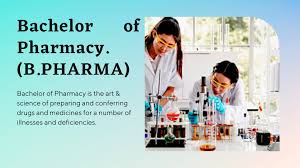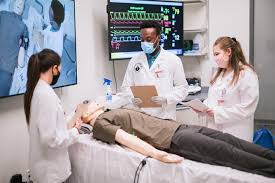In the realm of healthcare, pharmacy stands out as a dynamic field with diverse career opportunities. With the demand for pharmaceutical services continually on the rise, pursuing a pharmacy degree promises both stability and personal fulfillment. However, with various options available, aspiring pharmacists often find themselves at a crossroads, deliberating which pharmacy degree best aligns with their career goals. Whether it’s a Bachelor of Pharmacy (BPharm), Doctor of Pharmacy (PharmD), or a specialized degree, each offers unique advantages and pathways. In this comprehensive guide, we’ll explore the nuances of each pharmacy degree to help you make an informed decision about your professional journey.
1. Bachelor of Pharmacy (BPharm): Building a Strong Foundation

The Bachelor of Pharmacy (BPharm) serves as an entry-level degree for pharmacy practice in many countries. Typically spanning over four years, this undergraduate program equips students with fundamental knowledge in pharmaceutical sciences, pharmacology, pharmaceutics, and pharmacy practice. BPharm programs focus on building a strong theoretical foundation alongside practical skills essential for entry-level positions in community pharmacies, hospitals, or pharmaceutical industries.
One of the primary advantages of pursuing a BPharm is its relatively shorter duration compared to the PharmD program, allowing graduates to enter the workforce sooner. Additionally, for individuals aiming for careers in pharmaceutical sales, research, or regulatory affairs, a BPharm degree can serve as a solid stepping stone.
However, it’s important to note that in some regions, the BPharm degree may be phasing out in favor of the PharmD as the standard entry-level qualification for pharmacists. As the profession evolves, employers increasingly value pharmacists with advanced clinical training and patient care skills, which leads us to the next option.
2. Doctor of Pharmacy (PharmD): Elevating Patient Care

The Doctor of Pharmacy (PharmD) has become the gold standard for pharmacy education in many countries, including the United States. PharmD programs typically span over four years beyond the undergraduate level and emphasize clinical skills, patient care, and interprofessional collaboration. Unlike the traditional BPharm programs, PharmD curricula focus extensively on experiential learning, providing students with hands-on clinical rotations in various healthcare settings.
The shift towards PharmD education reflects the evolving role of pharmacists as integral members of the healthcare team. PharmD graduates are equipped not only to dispense medications but also to provide medication therapy management, patient counseling, and preventive care services. With a PharmD degree, pharmacists have expanded career opportunities in clinical pharmacy, ambulatory care, geriatrics, and specialty pharmacy practice.
While the PharmD offers a more comprehensive and patient-centered approach to pharmacy education, it also requires a significant investment of time and resources. Prospective students should carefully consider the financial implications and the commitment required to complete a PharmD program.
3. Specialized Pharmacy Degrees: Niche Opportunities
In addition to the traditional BPharm and PharmD programs, aspiring pharmacists can explore specialized pharmacy degrees tailored to specific areas of practice. These include but are not limited to:
- Pharmaceutical Sciences: Focused on drug discovery, development, and formulation.
- Clinical Pharmacy: Emphasizing advanced patient care and medication management.
- Pharmacotherapy: Concentrating on optimizing drug therapy and patient outcomes.
- Pharmacoeconomics: Examining the cost-effectiveness of pharmaceutical interventions.
- Regulatory Affairs: Addressing drug approval processes, compliance, and safety regulations.

Specialized pharmacy degrees cater to individuals interested in niche areas such as research, academia, industry, or regulatory affairs. They offer in-depth knowledge and skills relevant to specialized roles within the pharmaceutical sector.
Choosing the Right Path
Ultimately, the best pharmacy degree for you depends on your career aspirations, personal interests, and professional goals. Consider factors such as program duration, curriculum structure, career prospects, and financial considerations when making your decision. It’s also beneficial to seek guidance from practicing pharmacists, faculty members, and career advisors to gain insights into the industry and make an informed choice.
Regardless of the pharmacy degree you pursue, continuous learning and professional development are essential to thrive in this ever-evolving field. Whether you choose a BPharm, PharmD, or a specialized degree, each pathway offers unique opportunities to make a meaningful impact on patient care and contribute to the advancement of pharmacy practice. So, embark on your journey with confidence, knowing that you’re entering a profession dedicated to improving health outcomes and enhancing the quality of life for individuals worldwide.


